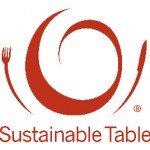Sustain a Health Lifestyle with Sustainable Agriculture
Sustainable agriculture, as defined by SustainableTable.org, is the production of food, fiber, or other plant or animal products using farming techniques that protect the environment, public health, human communities, and animal welfare. In other words, sustainable agriculture produces healthier food without compromising future generations’ ability to do the same. There are many reasons to embrace sustainability:
Health. Food production should never come at the expense of human health. Since sustainable crop farms avoid hazardous pesticides, they’re able to grow fruits and vegetables that are safer for consumers, workers, and surrounding communities. Likewise, sustainable livestock farmers and ranchers raise animals without dangerous practices, such as the use of non-therapeutic antibiotics. Through careful, responsible management of livestock waste, sustainable farmers also protect humans from exposure to pathogens, toxins, and other hazardous pollutants.
Animals. Sustainably-raised animals are treated humanely and permitted to carry out natural behaviors such as rooting in the dirt and pecking the ground; whereas on factory farms, animals are crammed together in unpleasant, unsanitary conditions often leading to high levels of stress and illness. Recently, a Northern California company recalled more than 8.7 million pounds of beef because the products came from diseased animals without a full federal inspection.
Environment. Industrial agriculture pollutes the air, water, and soil. It reduces biodiversity and contributes to global climate change. On unsustainable factory farms, thousands of animals excrete tons of waste every week. Millions of gallons of this untreated waste are often held in open-air lagoons and pollute the surrounding air, land, and water.
Workers. On industrial farms, workers are often poorly paid and subjected to dangerous working conditions. Employees on sustainable farms, however, are paid a fair wage and treated with respect.
Fossil fuels & energy use. Industrial food production consumes tremendous amounts of fossil fuel, which is used to manufacture synthetic fertilizer, to process foods, and to ship foods on increasingly long distances. Fossil fuel is a non-renewable resource ─ meaning it cannot replenish itself.
Saving family farms. Since the 1950s, large-scale industrial farms have pushed small family farms out of business at an alarming rate. Eating sustainably supports a true American tradition that’s part of our cultural heritage: the small, independent family farmer.
Sustainable farming focuses on raising food that is healthy for consumers, creating change one forkful at a time. This information is courtesy of Sustainable Table (www.sustainabletable.org).
Grow Your Own Food
Bypass the industrial food system altogether by growing your own ─ it’s as local as you can get! Ed Thralls, Master Garden at Orange County’s UF/IFAS Extension Services, says that March is the ideal time to plant a “warm season” vegetable garden with tomatoes, peppers, eggplant, squash, corn, and beans. You’ll gain many benefits from growing your own food if, according to Thralls, you have the four necessary elements: 1) Six or more hours of sunlight daily 2) Close access to a water source 3) Distance from trees and shrubs, and 4) Well-drained soil.
Thralls explains, “Growing your own food is beneficial for families, especially as it concerns: food safety ─ you’ll know what was added to the plants to make them grow (pesticides, fertilizers, etc.); freshness ─ you can harvest food at its peak ripeness for the best flavor, which is often not the case with store-bought produce; knowledge ─ there is nothing better, in my opinion, than a food garden to create a strong family bond (but don’t just relegate youth activities to pulling weeds, instead allow them to lead their own garden or plants), and exercise ─ stimulation of both the body and the mind.”
Local Resources
Access a database of local sustainable food vendors, including farms, restaurants, stores, organizations, and more at EatWellGuide.org.
Enjoy fresh fare in the fresh air at farmers markets via CentralFloridaFarmersMarket.com.
Save time while gaining healthier benefits by ordering online at HomegrownCoop.org.
Eat on the wild side! Find dairy, eggs, fish, and meat products throughout the state at EatWild.com. Studies show that wild salmon is packed with heart-healthy Omega 3’s, while farm-raised salmon can contain toxins and chemicals.
Get involved in creating a healthier community through organizations such as SimpleLivingInstitute.org and SlowFoodOrlando.org.







